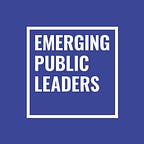Reflections on Zambia’s Historic Elections
By Nduulwa Kowa
Sixteen years ago, my brother and I left our childhood home, where we lived with our grandmother, to join our mother in the United States. We didn’t know what to expect, aside from what a couple of friends and cousins had told us about America; there’s no dust and you don’t have to take your shoes off before entering the house. In just a few weeks, we gained a better understanding of our environment and who we were: the only Zambian kids at our elementary school in Middle America.
The older I got, the deeper my appreciation of Zambia became. Zambia’s reputation as a peaceful, friendly, and democratic nation was what I often bragged about when discussing politics with fellow Pan-African Student Organization members in college.
Zambia is widely regarded as one of Africa’s most stable democracies. Fair and largely peaceful elections have been the norm since the formation of a multi-party system in 1991.
In a historic vote, Zambians elected opposition leader Hakainde Hichilema as president last month. Hakainde Hichilema, also widely referred to as ‘HH’ or ‘Bally’ — an informal term for father — won by a landslide against former president Edgar Chagwa Lungu.
With an intimate understanding of the importance of this year’s elections, young people showed up in droves — more than half of the seven million registered voters were under the age of 35. Hakainde Hichilema’s mostly social media-driven campaign resonated with young voters; his promise to “fix it” being especially enticing, inspiring music and merchandise with the phrase “Bally Will Fix It.”
In the leadup to this year’s elections, votes were tied to the country’s economic crisis, allegations of corruption, and high rates of youth unemployment. Zambians were frustrated, and rightfully so. After spending the first four months of 2021 in Zambia, I would often think to myself, how in the world is the average person making ends meet?
Food, fuel, and other necessities were expensive; I distinctly remember spending nearly the equivalent of what I would spend at a grocery store in the United States when shopping at popular Zambian supermarkets like Shoprite.
Casual conversations with friends while I was in Zambia frequently turned political, with many of my friends expressing considerable discontent with job prospects and a desire to seek greener pastures if given the option. The Afro-optimist in me often left conversations frustrated, but still hopeful that better days were ahead. Understandably, this election meant a lot to young people across Zambia who lost confidence in former President Lungu’s ability to turn the economy around.
President Hichilema’s margin was a massive 2.8 million to former President Edgar Lungu’s 1.8 million votes. Voter turnout was also at a historic high level at 70 percent; the highest since the country held its first multi-party elections in 1991. What this landslide win showed, more than anything, is that youth voices matter.
When asked about the significance of this election, Silvia Mutila — a 25-year-old unemployed nurse — told BBC, “I am not voting for anyone in this election — I am voting for my job. I can’t go four years without a job.”
A more stable economy and job creation are top priorities for young people across Zambia, in addition to a government that works for them. Notably, the new president stands firm in his commitment to democracy and good governance, in stark contrast to his predecessor, who was notorious for limiting press freedom and civil liberties.
Countries across the continent have taken note, with young people tweeting things like, “Nigeria is next” and media outlets like Cite hosting a webinar titled Zambia’s Historic Election: Lessons for Zimbabwe recently. It is empowering to realize that my generation changed history, and young people across Africa have witnessed that they too, have the power to turn their countries around.
“We are not masters of the people, we are their servants,” President Hichilema tweeted after he was declared the winner. This declaration, among other bold statements from the president, gives us a peek into a brighter, more equitable future for Zambians.
As a Princeton in Africa Fellow for Emerging Public Leaders, an organization that creates opportunities for talented young Africans to serve in government, the most important lesson I’ve learned thus far is that civil servants are the unsung heroes of any democracy. It is now up to civil servants, particularly young Zambians in government, to bring about change and deliver for the people in years to come. My only hope is for a Zambia that works for all of its citizens; one that my friends, my little cousins, extended family and future generations can thrive in and call home.
